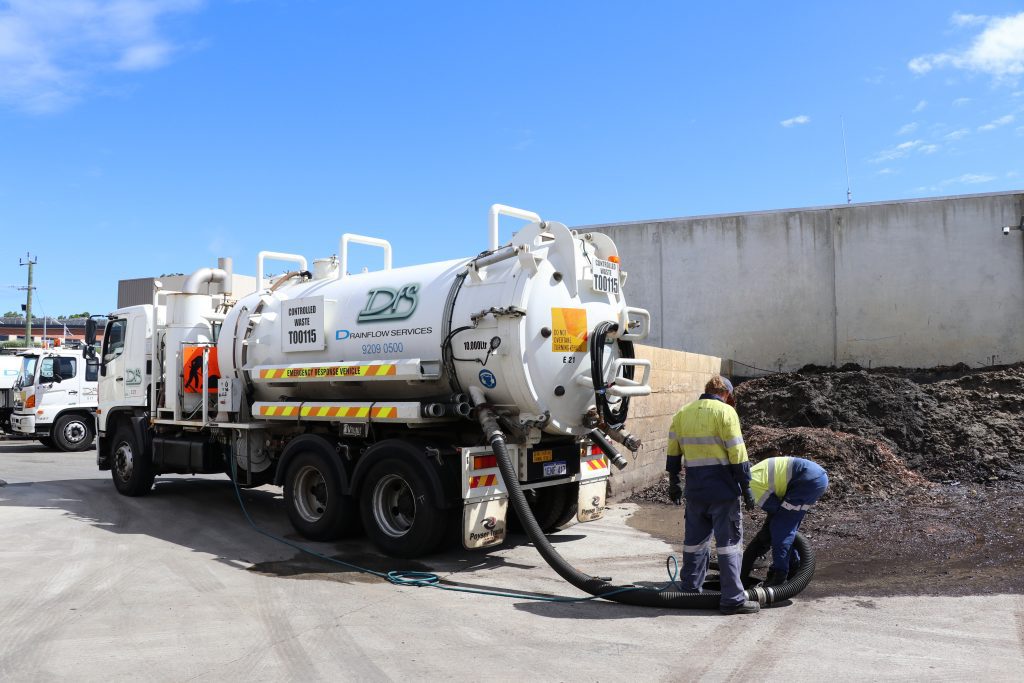How Reclaim Waste can Save You Time, Stress, and Money.
How Reclaim Waste can Save You Time, Stress, and Money.
Blog Article
The 2-Minute Rule for Reclaim Waste
Table of ContentsReclaim Waste - The FactsThe Reclaim Waste Diaries9 Easy Facts About Reclaim Waste ShownThe Facts About Reclaim Waste RevealedNot known Factual Statements About Reclaim Waste
Domestic sewer waste refers to the waste and products from a property septic tank. The correct management and disposal of residential sewer waste require fluid waste to be moved to a sewer therapy plant where the proper methods and tools are applied to purify and dispose of waste.
Commercial waste usually includes potential risks, such as flammable products or a combination of fluid and strong waste items, and requires a more sophisticated and in-depth disposal process. The disposal of business waste usually entails the purification of waste before transport to make sure safe and correct disposal. Industrial waste is produced from by-products and runoff of commercial processes and production.
This type of waste can not use the very same sewage management transportation or processes as septic or business fluids. The hazardous waste administration procedure needs the evaluation and screening of fluid waste prior to it undertakes the disposal process (industrial wastewater treatment). Overflow waste is the liquid waste that comes from overflow and excess stormwater in very inhabited locations or cities
Drainage waste can trigger contamination and flooding otherwise dealt with correctly. Find out more about sewer cleansing and waste monitoring. Making sure appropriate waste management can prevent catastrophes and lower environmental harm. Both people in residential setups and experts in business or manufacturing sectors can gain from recognizing the processes and policies of fluid waste management.
An Unbiased View of Reclaim Waste
Call PROS Services today to learn more about our waste administration and disposal services and the appropriate ways to care for the fluid waste you create.
(https://www.twitch.tv/reclaimwaste1/about)This so-called 'wastewater' is not only a vital resource but, after treatment, will certainly be released to our land, rivers or the ocean. Utilized water from toilets, showers, bathrooms, kitchen sinks, washings and industrial procedures is known as wastewater.

water made use of to cool down equipment or clean plant and devices). Stormwater, a form of wastewater, is overflow that moves from agricultural and metropolitan areas such as roofs, parks, gardens, roads, paths and seamless gutters into stormwater drains pipes, after rain. Stormwater streams neglected straight to local creeks or rivers, ultimately getting to the ocean.
Reclaim Waste - The Facts
In Queensland, most wastewater is treated at sewer treatment plants. Wastewater is moved from domestic or industrial sites with a system of sewers and pump terminals, known as sewerage reticulation, to a sewage treatment plant. City read this governments construct, keep and run most sewer treatment plants. Operators are accredited under the Environmental Security Act 1994 to discharge treated wastewater at an appropriate ecological requirement into waterways.
The Department of Natural Resources advises city governments about handling, operating and keeping sewage systems and therapy plants. In unsewered areas, local governments might call for homeowners to set up private or household sewer therapy systems to treat residential wastewater from toilets, kitchen areas, shower rooms and laundries. The Division of Natural Resources authorises using family systems when they are shown to be effective.
Most stormwater obtains no treatment. In some new neighborhoods, therapy of some stormwater to eliminate litter, sand and crushed rock has started using gross pollutant catches. Wastewater treatment happens in four phases: Eliminates strong matter. Larger solids, such as plastics and various other objects incorrectly released to sewage systems, are removed when wastewater is gone through displays.
Makes use of tiny living microorganisms recognizes as micro-organisms to damage down and remove continuing to be liquified wastes and great particles. Micro-organisms and wastes are integrated in the sludge.
The 45-Second Trick For Reclaim Waste
Nutrient removal is not offered at all sewage treatment plants because it calls for pricey specialised devices. Clear liquid effluent created after therapy may still include disease-causing micro-organisms - liquid waste disposal.

Many wastewater flows right into the sewerage system. Under the Act, regional governments carry out approvals and licences for ecologically relevant activities (Periods) entailing wastewater releases that could have a local influence.
3 Simple Techniques For Reclaim Waste
Tracking supplies accurate info regarding water quality and can confirm that licence conditions are being satisfied. The details gotten via surveillance offers the basis for making water quality decisions.
Report this page